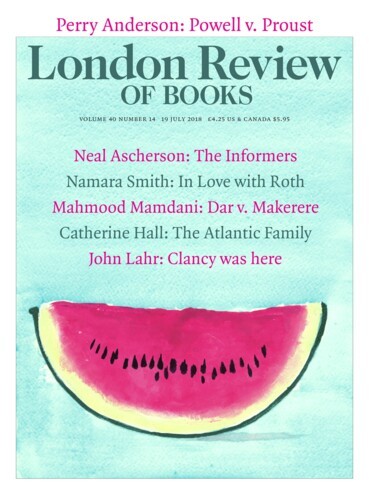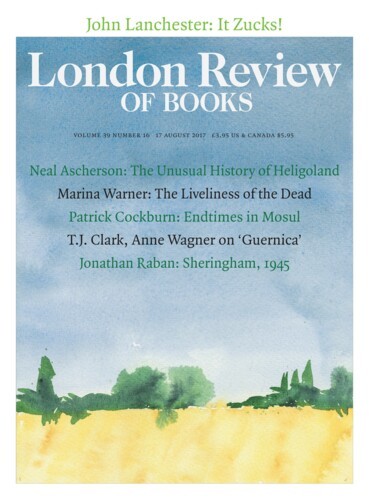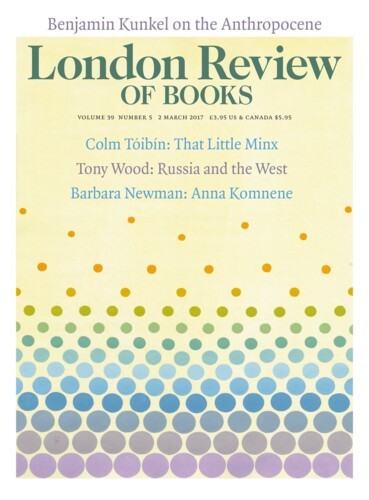‘Kek kek! kokkow! quek quek!’: Chaucer’s Voices
Barbara Newman, 21 November 2019
Every age creates its own Chaucer. For Eustache Deschamps, a contemporary, he was the ‘grant translateur’. For Hoccleve, a disciple, he was ‘my deere maistir’ and ‘the firste fyndere [inventive poet] of our fair langage’. The 15th century revered him for his eloquence, while the 20th century gave us many Chaucers: genial naif, apostle of courtly love, austere Augustinian moralist, sycophantic courtier, ironist and, not least, duelling misogynist and feminist versions. In Marion Turner’s capacious biography – the first since Derek Pearsall’s in 1992 and the first ever by a woman – Chaucer is Bakhtinian and plural, a man of many voices.





